There are a few things that everyone in my family has in common. For example: We all care about what we wear, we all love Arizona, we’re all beach bums, and we all get overly obsessed and competitive when it comes to jigsaw puzzles. But whereas I forget to work out for weeks at a time, my parents and brother are really, really into fitness. Like, really.
You may recall that my brother, Scott, is a pretty amazing runner. He had the fastest time in the Marine Corps Marathon 10K in 2012, but wasn’t named the winner because of various issues. He turned 30 this year and has already won a couple of races, plus he came in 11th overall in the Flying Pig half marathon, despite slowing down when he realized the lead group had been led the wrong way and ran an extra 0.4 miles. And though he did run in high school, he didn’t really start taking it seriously until a few years ago — so there is hope for there rest of us yet!
Scott also doesn’t JUST run. He lifts weights (to counteract his naturally super-thin physique) and also swims and plays basketball, among other things. So I thought it might be fun and helpful to do a Q&A with him about his workout schedule, how he got so dang fast, and what the heck the boy who used to down an entire pint of Ben & Jerry’s on the reg eats now.
Q: When did you decide to get serious about running?
A: Well, I started running to lose weight, very casually and unstructured in January 2011. Compared to what I ran in high school, I sucked at this point; I ran a 23-minute 5K in March after a solid month of getting out the door. I was consistent and improving through 2012 (running 5Ks around 18:30 by the end of summer 2012), but I truly got “serious” in November 2012. That’s when I decided I really wanted to get into running shape and put together a structured program. Unfortunately, I was basically injured all last year because I am dumb, so I stagnated from the spring to fall and just got back on track around November.
Q: What are your running/other exercise goals? What have you achieved so far that you are proud of?
A: My main goal right now is to break 16 minutes in the 5K. I would like to run a fast half marathon this year, and I really am hoping to run well at cross country club nationals in December. Basically, I just want to be faster than a college girl.
Apart from running, I am trying to improve my lifts, specifically my bench-press, which I want to get over 300. My current max has been floating around 290-295 for some time and really regresses with the increased running volume, since I’m not focused on it and I only weigh 155 pounds, so it’s really tough. The rest of the stuff I like to do is just for enjoyment, and I can’t really say I have specific goals for that.
As for achievements, if you would have asked me that last year, my answer would have been totally different and probably would have mentioned all the weight that I have lost. But this has been a crazy year: I’m really proud of my progress. So far I have “run through” all of my races, which is lame runner jargon for not focusing on a race, dropping off the weekly totals or skipping workouts to prepare. I PRed (set a personal record) in the 5K in a cold race (17:22, 10 degrees F), then won my next one and PRed (17:18), took another W the race after that, then ran a 10K and PRed in the 2-mile through 10K there (34:33, second 5K was 17:12), and then went on to PR in the 5K again (16:44) on a Thursday and win another on Saturday. All of that within the span of 5 weeks. I can’t say I’m more proud of any of the individual accomplishments more than any other, I’m just happy to see that I am improving steadily.
Q: What does a typical week look like for you, workout-wise?
A: My schedule is/will be broken into segments: base, strength, sharpening, race. But a normal week for me will be setup like this:
Mon. – Easy mileage. 4 to 8 miles
Tues. – Speed work. Around 10 miles total
Wed. – Easy mileage plus strides. 8-10 miles total
Thurs. – Speed or tempo type work. Around 10 miles total
Fri. – Easy mileage. 4 to 8 miles
Sat. – Easy mileage. 6 to 10 miles, plus strides
Sunday – 90 minute run or race. The 90 minutes usually equate to 13 to 13.5 miles at about a 6:45 pace.
Total mileage: about 60
Additionally, I lift about five days a week for my upper body, and have just recently started getting into some core and explosive leg work as well. Also a touch of swimming here and there. The lifting sets me back for my running, but I realized long ago that I will never be world class and it keeps me happy with body image. So, yeah.
Q: What kind of times were you getting when you first started (a few years ago) vs now?
A: I guess I kind of already answered this, but Dad beat me in a 10K in 2009 when I ran a 49:28. I also ran a 5K that year in 22 minutes. I just ran a 34:33 10K and a 16:44 5K, so pretty drastic improvement. That’s a change from a 7:57 pace to 5:33 for a 10K, and 7:04 to 5:23 for 5K.
Q: What did you do to get faster?
A: The big thing for me was putting together a structured program and following it. I was improving slowly before, but I was just running miles and racing here and there. I found that I wasn’t holding myself accountable, and though it was probably smart to listen to my body at that point from an injury-prevention standpoint, I was resting way more than I needed to between runs and overestimating my total mileage. Having a detailed log and a program to compare it with led to huge improvements.
I should also mention that losing weight had a big impact. When I first started, I plateaued. I was at a point where I was running too slowly to burn more calories, and too heavy to run faster, so I was spinning my wheels. I had refused to diet up until that point, but by cleaning up my diet and laying off the sauce a bit I was able to drop like 10 pounds in two weeks. That helped both my speed and form drastically.
Q: I know we both were extremely picky eaters growing up. What do you normally eat now?
A: I eat really whatever I want. Probably as a function of lifting so much, I crave protein all the time. I don’t feel full without some meat in a meal. I certainly do not have a great diet (it’s horribad), I very rarely, if ever, cook and I don’t count calories. But I eat all day, and I try to make my snacks decent at least. Yesterday was a pretty normal day for me so this is what I ate:
Morning – chocolate milk & yogurt + multivitamin
Snack – pack of peanuts & Dr. Pepper
Lunch – Qdoba steak burrito & Dr. Pepper
Snack – beef jerky & grapes
Post-run – protein shake with peanut butter and strawberry
Two half-pound bacon cheese burgers & chips and salsa
Post lift – protein shake + CLA (supplement)
I still don’t eat potatoes, eggs, mushrooms, or cooked carrots at all. I don’t like white sauces or hardly any condiments. I would say that most of my diet is meat with a sauce, rice/tortillas/chips as carbs, and a lot of cheese. My biggest miss is vegetables, and I try to eat fish as often as possible. My biggest vice is ice cream, and drinking doesn’t help much either.
Q: What do you like to eat after a workout? What about before a race?
A: Right after a workout I find it easiest to drink calories. I don’t feel hungry immediately after, so I find that shakes are a good way to get in something fast. Then I can go and eat something small to make it more well-rounded, but I would say it’s most typical for me to just chug a shake of some sort, or chocolate milk. A lot of my friends juice or do more intense shakes, which is smart. I am just lazy and don’t like most of that stuff, but I think that’s the way to go if you can stomach a pureed garden.
My race diet is very structured. I have a nervous stomach before racing, so I have to make sure I am uh… “at race weight” going in. The night before, I drink 50/50 beet/apple juice (400ml) and will eat half a banana or so. When I get up I drink 50/50 beet/apple (600 ml) again, finish the banana, have a glass of milk and eat something light like a clif/power/granola bar/bowl of cereal. This is at least 3 hours before the race. I will also do something for caffeine, maybe a caffeine tab or something.
Q: What advice would you give someone who wants to get into running, or to improve their running?
A: The two most important aspects of improvement are frequency and consistency. It is better to run 2 miles a day than 10 miles twice a week. Your body will find the rhythm of your workout plan, so keep it consistent and don’t overdo workout days. It’s great if you can run 20 miles every Sunday or blitz some incredible 400’s, but if you suffer the rest of the week or have to take days off, it’s counterproductive.
A long run should be something like 20-25% of your total weekly mileage; anything much longer than that puts too much time and stress on the body and is more suitable for an ultra marathon or “just finish” plan. Also, just because you are racing doesn’t mean you need to break the rhythm you’ve developed. Unless you are peaking for one specific race, try not to break your normal cadence as much as possible.
Running does not yield instant rewards. If you look at any marathon plan, you notice that the taper starts 2-3 weeks out from the race. That is because it takes about 3 weeks to really see the benefit of your workouts once you are decently trained. Don’t expect instant results and just stay at it, the longer you can stay consistent the more you will improve. Sometimes it takes years…. and that’s okay. As long as you are improving, not getting injured, and getting closer to your goal, there is no need to change the formula. It’s not going to happen overnight, and changing strategies may slow you down.
Don’t rush or feel pressured to run a half or full marathon. Marathoning has become hugely popular and many of the big races are now selling out within seconds. Last year the website for the Chicago marathon crashed and they had to do a lottery process, which is how I got in. Obviously finishing is a huge accomplishment and bucket list item for a lot of people, which is great, but if you are trying to do well, don’t rush it. Like me, you’ll end up injured, and also the training SUCKS. Many people are scared of speed work, but 8 suffering repeats on a track is a lot better than going out and doing 3+ hour long runs because you have an 18-20 miler on your schedule. Frankly, it’s not healthy for you and you are rushing it, so be smart and get comfortable in a faster pace before moving up.
When moving up in miles, go slow. There are a lot of unfounded articles and posts that give specific percentages that you should increase, which is garbage. Base it off performance and feeling; otherwise you are going to get injured.
When you do get injured, don’t ignore it. There are certainly aches, pains, and nagging things that will bug you, but be smart about them and don’t ignore real problems just because you’re afraid of losing fitness or the $10 you spent registering for the cupcake unicorn 5K for autistic kids with cancer that were hit by drunk drivers. If you really hurt yourself, you’ll be out a lot longer than its worth.
Do and don’t pay attention to form. Everyone should have a good idea of what good form looks like, but don’t get overly caught up in making it flawless. Rushing this process is a guaranteed injury, and form will change on its own with time and miles. If you are in the process of losing weight or just starting out, let your body find its natural form before tinkering, and yesterday was a good day to start doing core (read: not just abs) and hamstring work.
Doing drills and being aware of where you catch your weight are great tools for fixing form, and on the rainy (read: -20F) days it might be good to record yourself on the dreadmill. Then take a look at where your center of gravity is on impact and consider adjusting from there. Read up on cadence, arm swing, running from the hips, and everything else, and don’t go into less shoe unless you’re comfortable doing so. Some of the best runners in the world have awful form. Look at Priscah Jeptoo’s terrible knee tilt, Paula Radcliffe’s head bob, Desiree Linden’s awful overstride/heel strike, John Ngugi looked crippled, Abdi Abdirahman is a straight eyesore, Fernando Cabada looks like he has a gimpy left arm, etc, so don’t get too caught up in trying to look like Kenenisa Bekele or Sebastian Coe.
Write out a plan / hire a coach and find people to run with. The more accountability the better; you won’t want to let down your coach or miss workouts, and you won’t want to stand up or bail on your friends. Not everyone has to be as fast as you; it’s good to have friends or groups that are significantly slower because then you have a way to get in some easy miles on days that you are sore or maybe just an easy double. I’m a firm believer in making easy days easy, so schedule with your slow friend so you don’t take it out too hard if that’s a problem for you. A lot of times, having running buddies will help you switch up the scenery, and running at someone else’s place or meeting on some mountain bike trails will help keep things from getting stagnant mentally — not to mention how much easier it makes workouts.
Besides just normal running buddies, join a team. Don’t be embarrassed of your current fitness. My first year I was afraid to get out there with people until I felt fit enough, and that was a mistake. Joining a team gave me a lot of options for running partners, comradery, motivation, and good race markers. Knowing people in a race can give you a great gauge for where you need to be during the race too, because you have to beat Jon or you’ll never hear the end of it (…that fat bastard). My team has a points system based on placement and PRs in races, with special points for focus and larger races, with awards and gift certificates at the end of each season which motivates us to race more frequently for bragging rights and more free shoes. Doing something like that can be a great motivator and help prevent burnout.
Lastly, watch this video every day:
[youtube=http://www.youtube.com/watch?v=5LHid-nC45k&w=420&h=315]

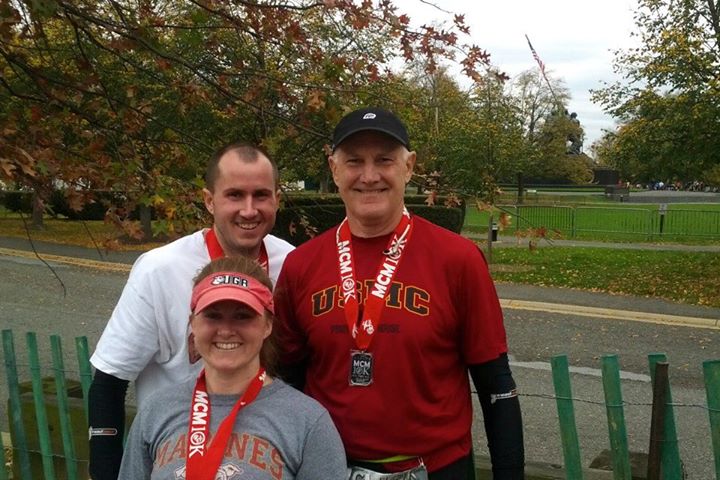
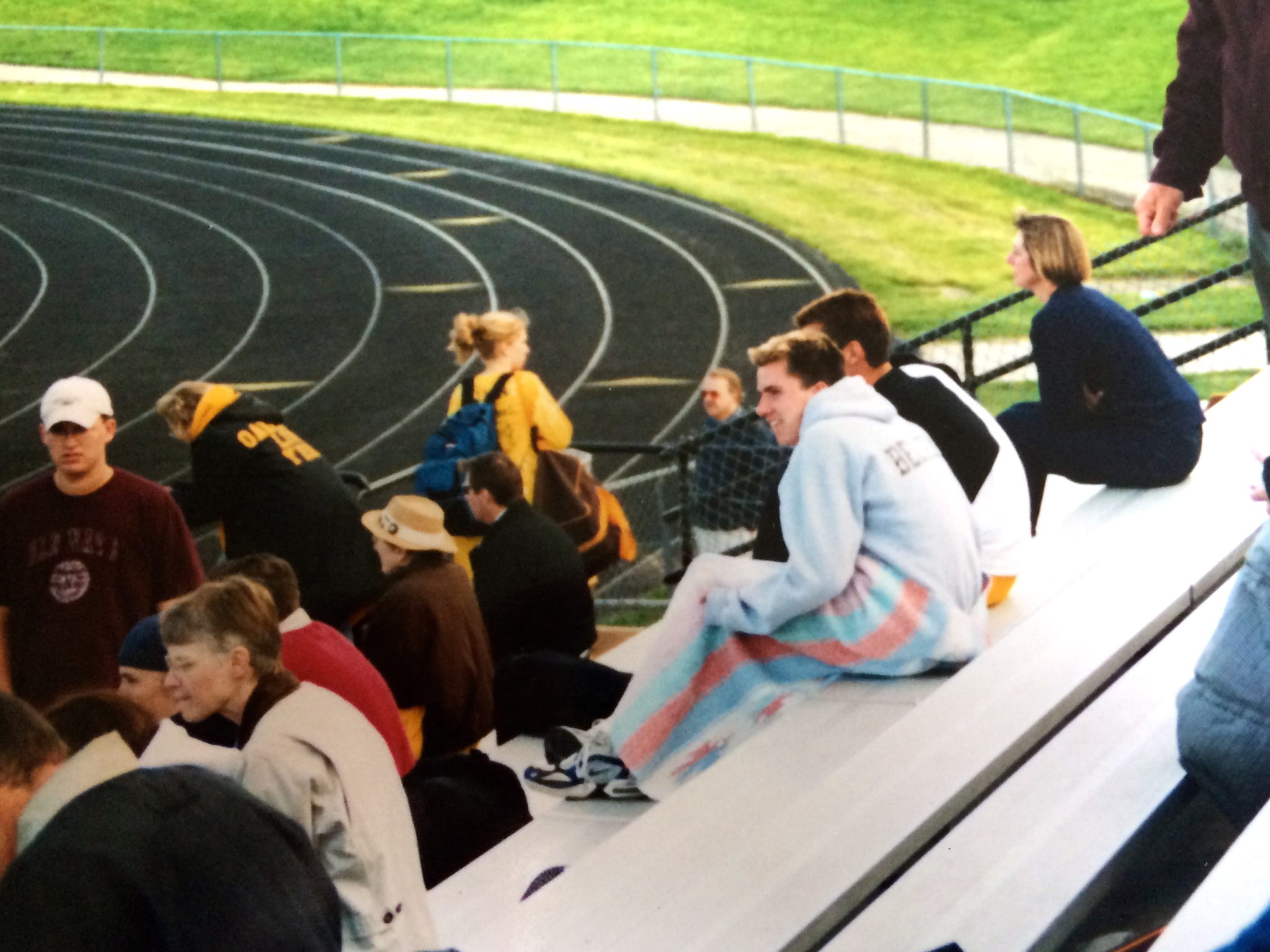
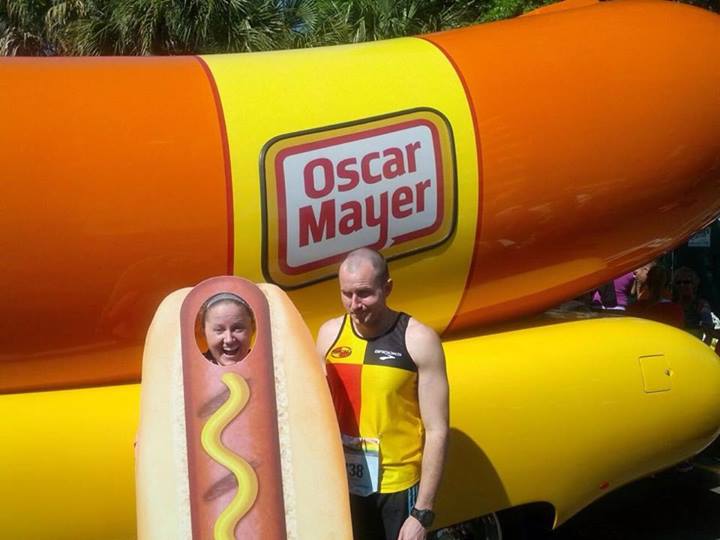
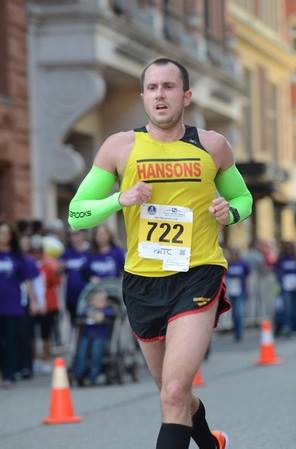
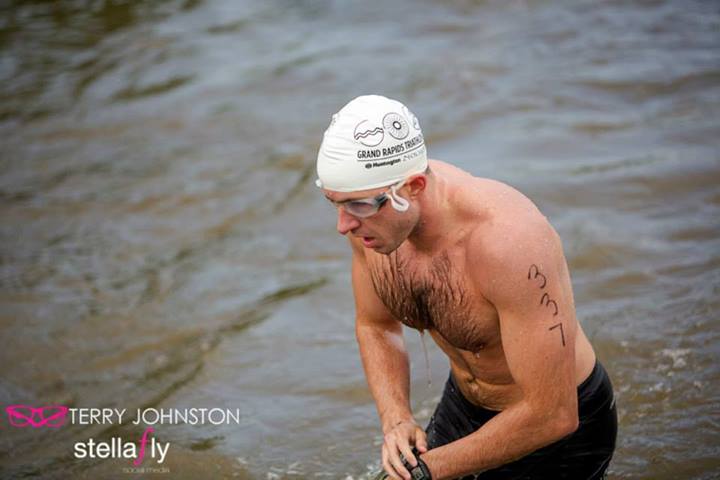
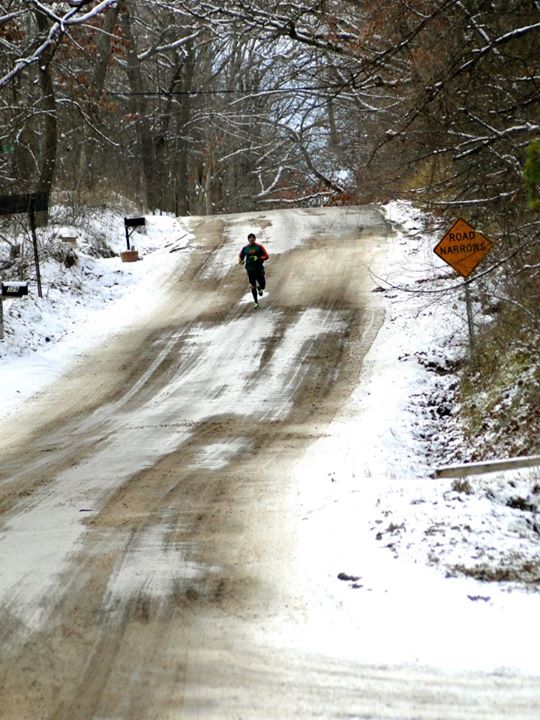
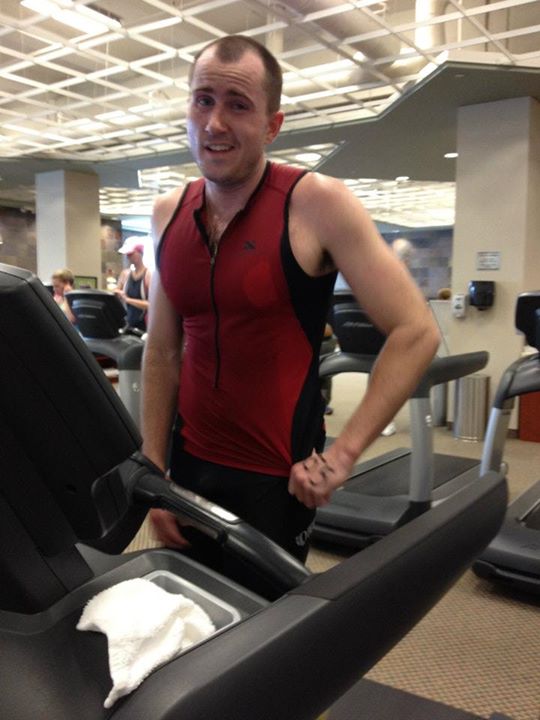
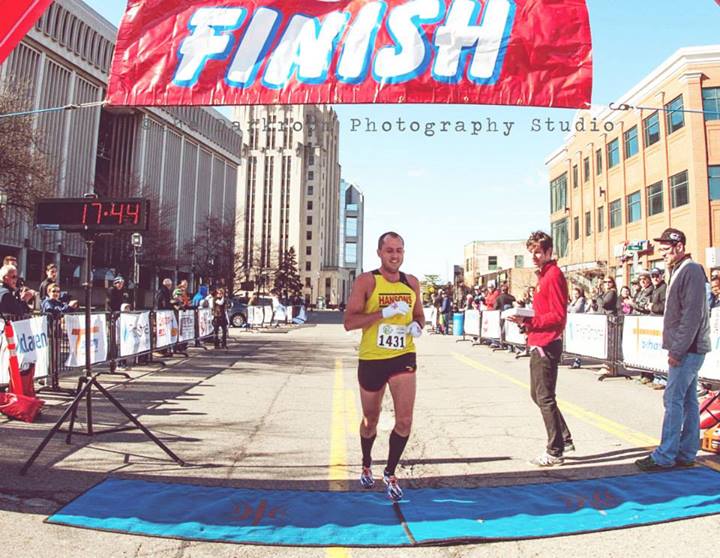


One thought on “How to start running (or get faster)”
Comments are closed.